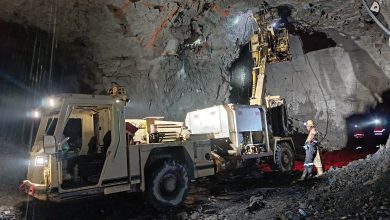
Sustainable Mining: Balancing environmental compliance and critical mineral extraction in South Africa
By NSDV’s Dominic Varrie, Candidate Attorney, and Mandy Hattingh, Legal Practitioner
Introduction
In the global pursuit of sustainable development and the transition towards cleaner energy technologies, the demand for critical raw materials (CRMs) has surged, casting a spotlight on the impact of their extraction and processing.
For context, CRMs refer to raw materials that are economically and strategically important for various industries, particularly those related to technology, energy, and defence, but are at high risk of supply disruption due to their scarcity or concentration in certain regions. These materials are essential in the production of advanced technologies such as renewable energy systems (solar panels, wind turbines), electric vehicles (EVs), electronics, and military applications. Their critical nature stems from the combination of their high demand and the difficulty in securing reliable and sustainable supply chains.
Countries and jurisdictions like the United States and the European Union have published specific lists of CRMs. South Africa, however, has not done so, although the Department of Mineral and Petroleum Resources has identified minerals crucial to the country’s economy and global supply chains, including platinum group metals (PGMs), manganese, vanadium, and chromium. These minerals fall within the generally accepted global definition of CRMs.
As global demand for CRMs rises — driven by factors such as the growth of EVs, the adoption of renewable energy, and technological advancements — initiatives like the Lobito Corridor are paving the way for sustained industry expansion. The Lobito Corridor, a vital transportation route connecting the mineral-rich regions of Central Africa, including the Democratic Republic of Congo and Zambia, to the Atlantic coast through Angola, provides more efficient access to export markets. This, alongside South Africa’s position as a leading global producer of PGMs, manganese, and significant reserves of vanadium, is strategically positioning the region for long-term growth, enhancing both supply chain efficiency and resilience in response to increasing global demand.
However, while South Africa’s strategic role in the global CRM market presents significant economic opportunities, these come with the responsibility of managing the environmental impacts that mining inevitably entails. As we explore the economic opportunities presented by CRM investments in South Africa specifically, interested parties must understand how to navigate the intricate landscape of environmental and regulatory compliance. To do so, it is first necessary to understand the relationship between CRM mining and the environment.
The relationship between CRM mining and the environment
Mining CRMs in South Africa plays a pivotal role in the global supply chain, particularly for clean energy technologies. However, the extraction of these materials carries significant environmental consequences that require careful management to ensure sustainable development. Key environmental impacts include land degradation, water pollution, air pollution, and large-scale energy consumption, all of which can have lasting effects on ecosystems, the broader environment, and local communities.
Land degradation and habitat loss result when large tracts of land are disturbed for mining purposes, leading to soil erosion and the destruction of natural habitats. Although South Africa mandates mine rehabilitation, ensuring that land is restored to its original state remains a challenge. Additionally, water pollution, particularly through acid mine drainage (AMD), poses significant risks to the country’s already scarce water sources, as mining activities often lead to the contamination of rivers and groundwater with heavy metals and chemicals.
Air pollution from mining activities, combined with the heavy reliance on coal for energy, further exacerbates the environmental footprint of CRM extraction. Mining operations and coal-fired energy production plants emit particulate matter and greenhouse gases, contributing to both (well-documented) local health issues and global climate change. Waste management is another pressing concern, with improper disposal of tailings and other by-products posing the risk of toxic spills and environmental contamination.
Despite these challenges, South Africa’s legal framework (discussed in greater detail below) provides mechanisms to regulate the environmental impact of mining preventing unacceptable damage while avoiding stifling sustainable development.
Compliance with these regulations, along with innovations in greener mining technologies and waste management, is critical to striking a balance between economic growth and environmental protection. In addition to legal compliance, advancements in mining technology — such as the use of renewable energy in operations and innovative waste management practices — are becoming crucial to reducing the environmental impact of CRM extraction. These innovations help mining companies meet global sustainability goals while minimising their carbon footprints.
For mining operations, environmental compliance is not just a regulatory obligation but a cornerstone in the ethical and sustainable extraction of CRMs. Adherence to environmental standards ensures that extraction processes are conducted responsibly, minimising environmental disruption and mitigating the potential for long-term damage while also encouraging foreign investment and investor confidence.
Legislative framework and compliance requirements
South Africa’s environmental legal framework is governed by a range of laws designed to protect both the environment and the rights of people, while also promoting sustainable development. Key legislation includes:
- Constitution of the Republic of South Africa, 1996: Guarantees the right of all people to an environment that is protected, for the benefit of present and future generations, through legislative measures aimed at preventing pollution, promoting conservation, and ensuring sustainable development.
- Mineral and Petroleum Resources Development Act, 2002 (MPRDA): Regulates mining rights, prospecting rights, and mining permits, all of which must be obtained before any mining activity can commence.
- National Environmental Management Act, 1998 (NEMA): Along with specific environmental management acts (SEMA) published thereunder, including the National Environmental Management: Biodiversity Act, 2004; the National Environmental Management: Protected Areas Act, 2003; the National Environmental Management: Air Quality Act, 2004 (NEMAQA); and the National Environmental Management: Integrated Coastal Management Act, 2008. Under NEMA, an environmental authorisation (EA) is required before any mining or prospecting activities can begin.
- National Water Act, 1998 (NWA): Governs water use in South Africa. If a mining or prospecting activity involves water use listed under section 21 of the NWA, a water use licence (WUL) must be obtained from the Department of Water and Sanitation (DWS), which assesses the environmental impacts of the proposed activity.
Before mining or prospecting, it is necessary to obtain various rights or permits under the MPRDA, NEMA, and other applicable environmental statutes, depending on the environmental impact of the specific operation under consideration.
From an environmental perspective, the key authorisation is an EA under NEMA. A WUL under the NWA may also be required, depending on the water uses associated with an activity. Securing an EA involves the applicant conducting a Basic Assessment (BA) or a full Scoping and Environmental Impact Assessment (EIA), depending on the specific listed activities triggered by the proposed development, which is determined by the size of a prospecting or mining project
Both the BA and EIA processes include requirements for public consultation. Compliance with these obligations is critical to ensure that communities and stakeholders are properly informed and engaged. Failure to conduct meaningful and adequate consultation can lead to legal challenges and project delays.
Recent high-profile cases, including (i) the interdict proceedings which prevented Shell / Impact Africa from conducting seismic exploration along the Wild Coast 1 and (ii) the interdict proceedings and subsequent appeals against seismic surveys off the West Coast have shown that communities and environmental NGOs are increasingly vocal in their objections to projects that pose significant environmental risks. In these cases, the adequacy of public consultation was spotlighted, and in the Shell/Impact Africa case, these objections were successfully upheld by the High Court and the Supreme Court of Appeal. This emphasises the importance of transparent, effective engagement with affected communities, as failure to do so can result in legal setbacks, reputational damage, and even project cancellation.
The Way Forward: Promoting Sustainability in the CRM Sector
As the world transitions towards greener energy solutions, South Africa’s ability to incorporate sustainability into its CRM mining sector will be crucial. In addition to adhering to existing regulations, South Africa can adopt international best practices to further promote sustainability. For example, the International Council on Mining and Metals (ICMM) has developed Mining Principles that encourage responsible environmental stewardship, ethical business practices, and transparent community engagement. Similarly, the International Finance Corporation (IFC) has outlined Environmental and Social Performance Standards that apply to mining projects, including those involving CRMs.
By promoting the use of these guidelines in its national framework, South Africa can position itself as a global leader in sustainable mining. This could involve encouraging the use of renewable energy in mining operations, improving waste management practices, and fostering stronger community relations through transparent consultation processes. By promoting innovation and sustainable practices, South Africa can ensure the long-term viability of its CRM sector while contributing to the global transition towards cleaner energy.
Conclusion
As the world transitions towards greener energy solutions, South Africa’s ability to extract CRMs responsibly will not only bolster its own economy but also set a global standard for environmentally conscious mining practices. By adhering to stringent regulations and prioritising sustainability, the country can ensure long-term benefits both for its people and the global supply chain.






